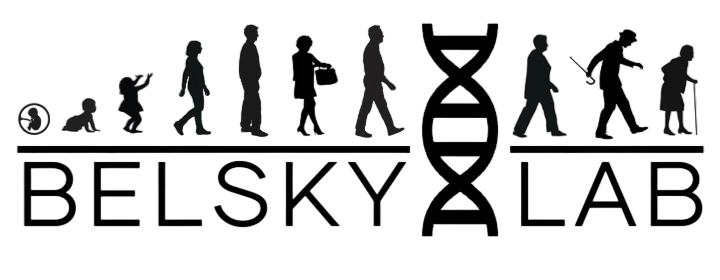About
We do health-equity geroscience.
Our research sits at the intersection of public health, genomics, and the population and behavioral sciences. The goal of his work is to reduce social inequalities in aging outcomes in the United States and elsewhere. Our studies seek to understand how genes and environments combine to shape health across the life course. We utilizes tools from genome science and longitudinal data from population-based cohort studies. The aim is to identify targets for policy and clinical interventions to promote positive development from early life and extend healthspan.
Our past research in genetic epidemiology has focused on how genetics shape the early development of chronic disease and socioeconomic risk. Current projects are using genetics to enhance rigor and robustness in randomized trials and natural experiments.
Our work in aging in focused on the development and analysis of algorithms to quantify the process of biological aging, especially in young and midlife adults. Current projects utilize these tools to test how lifecourse exposures shape trajectories of aging and how behavioral and policy interventions can modify aging to extend healthspan.
The Belsky Lab is currently pursuing three related streams of research:
Development of methods to quantify processes of biological aging in young and midlife humans;
Analysis of longitudinal cohort study and randomized trial data to identify molecular and behavioral pathways to resilience through which at-risk individuals can slow their pace of aging;
Analysis of gene-environment interplay to identify environmental factors that can be modified to reduce genetic risk for age-related disease and functional decline.
Currently, Belsky is PI or MPI of NIA-funded projects to develop multi-omics databases for the CALERIE Trial (R01AG061378) and Dutch Hunger Winter Family Study (R01AG066887), and to study the impacts of a proven anti-poverty intervention on biological aging in the My Goals for Healthy Aging Trial (R01AG073402). These projects all investigate the potential to modify biological aging via environmental and behavioral modifications. With support from the Russell Sage Foundation, the Jacobs Foundation, and the Canadian Institute for Advanced Research, Belsky is investigating how early-life and life-course social disadvantage influence the pace of biological aging.
Belsky is a leader in development and validation of measurements of biological aging and their application to understand how differences in trajectories of aging emerge from early life. He is a young investigator working to bring the cutting edge of aging science to bear on the challenges of health disparities. He developed the first measures of biological aging based on analysis of changes occurring within individual bodies as they age.
Belsky recently developed a novel DNA methylation measure test to quantify the pace of biological aging from a single-time-point blood test in collaboration with the Moffitt-Caspi Lab at Duke University. Code to implement the tool, DunedinPACE, can be found here. The paper is here. For a review of research with DunedinPACE, see here.
Prior to coming to Columbia, Dr. Belsky was Assistant Professor in the Departments of Medicine and Population Health Sciences at the Duke University School of Medicine, where he previously completed a postdoctoral fellowship at the Center for the Study of Aging and Human Development. Dr. Belsky earned his BA from Swarthmore College and his PhD from the UNC Gillings School of Global Public Health.
Belsky’s work has received international attention, including by the Wall Street Journal, Washington Post, and Guardian newspapers, and appeared in outlets including PNAS, Nature Genetics, Nature Human Behavior, the JAMA journals, Lancet Respiratory Medicine, and top journals in epidemiology and gerontology.

